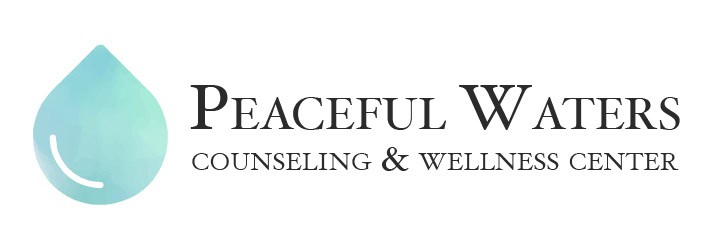Building Strong Marriages Through Conflict
A Holistic Approach to Connection, Healing, and Growth
“I’m worried about my marriage. I love my spouse, but I don’t know if I can trust him to pull through for us. I want to be pursued. I want to see him intentionally building a life with me, but sometimes I wonder if he really wants me—wants us. He’s emotionally distant, withdrawn, and often avoids engaging. And when he finally does show up, I feel myself shutting down and pushing him away. I don’t want to do that—but I do. I don’t know what to do.”
Thank you for your honesty. Questions like these reflect deep vulnerability and courage. Many couples find themselves in this place—struggling to feel connected, safe, and valued in their relationship. If you’re here, you’re not alone. What you’re describing is not uncommon, and there is a way forward.
Conflict in marriage is not a sign of failure—it’s an invitation. In fact, when approached with care and intention, conflict can become a turning point. Rather than something to avoid, it can be a path to deeper connection, emotional healing, and possibly a spiritual renewal. When couples are equipped with effective tools and informed counseling, they can begin to move from disconnection toward restoration with clarity, compassion, and purpose.
Why Consider Couples Counseling?
Relationships grow where there is empathy, trust, and mutual care. When both partners feel emotionally safe, old patterns of self-protection can begin to soften. These patterns—often formed out of hurt or fear—can be reshaped into new ways of relating that are more life-giving and secure.
In couples counseling, the goal is not to assign blame or “fix” one another, but to create a space where emotional safety can be reestablished. Therapists support this process by identifying cycles of pain and defense, and by guiding couples into a renewed way of communicating. This includes revisiting stories that shaped each person, offering space to be known more deeply, and allowing for risks that build trust over time. With consistency and openness, couples can learn to “catch” one another emotionally—choosing connection, even in difficult moments.
Whether you’re seeking help for a crisis or simply want to strengthen the bond you already have, counseling can be a valuable and hopeful step.
Let’s explore several key themes that can help foster healing, growth, and deeper intimacy in marriage:
Knowing Each Other Deeply
A thriving relationship begins with truly knowing your partner—what brings them joy, what causes stress, what matters most in their heart. It’s not just about day-to-day updates but about staying curious and emotionally present. As couples continue learning about each other’s life stories, spiritual background, and family dynamics, they create a stronger foundation of emotional closeness and trust.
Practicing Gratitude and Offering Grace
Expressing appreciation, even for small things, strengthens a marriage. It reminds partners of each other’s value and intention. At the same time, grace—making space for imperfection and growth—allows healing to take root. Forgiveness doesn’t mean forgetting pain, but choosing to move forward together with kindness and hope.
Connecting in the Everyday Moments
Love is often built not in grand declarations, but in the small, daily gestures of attention and care. A shared glance, a comforting word, or an offer to help—these everyday “bids” for connection matter. Responding to these bids with openness reinforces trust. Adding intentional shared rhythms, like a regular meal together, prayer, or simply checking in, can deepen that sense of “us.”
Working Together with Mutual Respect
Healthy marriages are partnerships where both voices matter. Each person brings perspective, wisdom, and needs that are worth honoring. Mutual respect means making space for both strength and vulnerability, for leadership and collaboration. When couples practice shared decision-making, humility, and care, they create a relational balance that supports long-term connection.
Facing Conflict with Curiosity, Not Judgment
All couples face conflict, but not all know how to navigate it well. Using a calm, respectful tone, pausing to regulate emotions, and staying engaged through difficult conversations are powerful tools for keeping connection intact. Often, what lies beneath conflict is deeper pain or unmet needs. Naming these honestly—and responding with empathy—can help transform arguments into deeper understanding.
Finding Meaning in Differences
Some differences in a marriage won’t be resolved, and that’s okay. Many disagreements stem from deeply held values or life dreams. Rather than trying to “win,” couples can aim to understand what really matters to each other. Over time, they can create a shared life story that makes space for both people’s hopes, beliefs, and experiences—even when they don’t always align.
Healing in a Larger Context
Marriages are shaped by more than just two people. Family systems, faith traditions, community influences, and personal histories all impact how couples relate. Counseling that honors this broader context allows for deeper insight and more holistic care. When trauma or past wounds surface, compassionate, trauma-informed care helps couples move toward healing without shame.
Moving from Conflict to Wholeness
Conflict doesn’t have to end in disconnection. With the right support, couples can move from feeling stuck to building something more secure, honest, and connected. By combining practical relationship tools, partners can learn to navigate hard moments with patience and grace. And over time, they can rediscover not just how to solve problems—but how to grow stronger, together.
If you or someone you love is feeling distant or discouraged in their marriage, know that support is available. Healing is possible. Love can be rebuilt. You don’t have to walk this road alone—and you don’t have to have it all figured out before reaching out.
Let this be your invitation to begin again—with hope.
